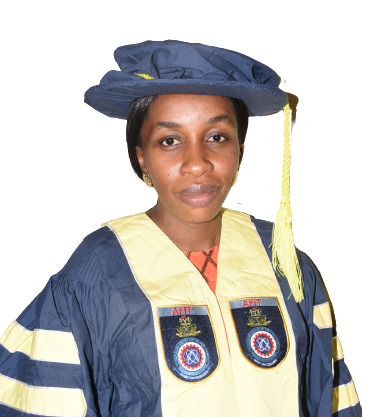Physics is the discipline which deals with matter and its relation to energy. It involves the study of physical and natural phenomena around us. Physics is the study of the entire universe. From studying stars far beyond earth, to explaining the shape of a water droplet. Physics degrees offer students the chance to explore and understand the fundamental building blocks of the universe in all its enormity and complexity, with a good range of career options after university.
Physics and applied Physics has applications in various disciplines including medical disciplines such as Medical Physics, Radiology as well as Engineering disciplines such as Aerospace Engineering, Automobile Engineering, Mechanical Engineering, Mechatronics, Metallurgical and Materials Engineering, and others.
Physics is the bedrock of engineering discipline and one of the pioneer undergraduate programmes introduced by AFIT in 2019. The Department was established under the Faculty of Science. On successful completion of the programme and fulfillment of other University requirements, a Bachelor of Science Degree in Physics (B.Sc.) is awarded. The programme is enriched with topics such as Mechanics, Geometrical Optics, Electricity and Magnetism, Thermodynamics, Atomic Physics, Quantum Mechanics, and Waves.
VISION OF THE DEPARTMENT
The Department of Physics at the Air Force Institute of Technology shall be known nationally and internationally as a centre of excellence in training and producing quality Physics graduates that can discover, disseminate, and apply the knowledge of Physics for human well-being and the development of the society and be renowned for its quality teaching, research, professional and community services.
MISSION OF THE DEPARTMENT
The department shall:
- provide high quality education to local and international students with high intellectual standing in both theoretical and experimental physics with emphasis on ‘problem-solving learning approach’;
- provide solid background for students with career objectives in Pure Physics and Applied Physics;
- provide well trained Physicist/Scientist that would apply their knowledge to solve local, national and international problems;
- inculcate sound scientific discipline to students such as independent work, resourcefulness, team work in scientific activities and honesty;
- engage in cutting edge research and development in support of needs in aerospace industries and in consonance with current trends in research and industry that are having both direct and indirect relevance to the needs of Nigeria and the world in general;
- provide a strong foundation for the pursuit of higher degree (M.Sc., M.Phil., and Ph.D);
- expand the department’s programmes to include postgraduate programmes.

